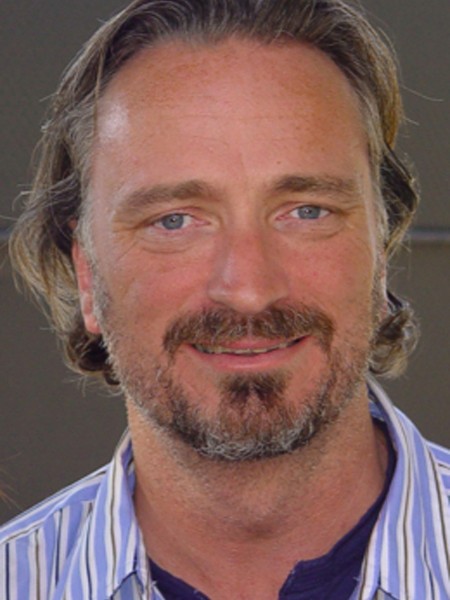
Brent Blair, director of the Applied Theatre Arts program, was invited to Tehran in September to present a two-day workshop and presentation at the first Applied Theatre Conference of Iran. Returning from the conference, the associate professor of theatre practice wrote a first-person recount of his experience.
By Brent Blair
As the U.S. and Iran have no official diplomatic relationship, bureaucratic suspicion is so recognizably high on both sides of this divide that while standing in line at the Tehran Imam Khomeini International Airport passport control, a friendly German couple asked how on earth an American got into the country, and was I going to have any trouble. I laughed, looking at the line moving towards the passport officer, saying, “Well, we’ll know in a few minutes.” Forty-five minutes and three interrogations, plus a fingerprint scan later, I tasted the reality of this frosty divide.
The warm manner in which the community of Iranian theatre practitioners welcomed me proves that art indeed dissolves political boundaries. Ali Zafar, founding host of the first annual Applied Theatre Conference in Tehran, invited practitioners in dramatherapy, theatre in education, and Theatre of the Oppressed from all over the world to participate in a five-day artistic dialogue on the power of theatre for social, political, and therapeutic transformation. In the end, I was among a small handful of foreign nationals who had managed passage to the conference.
Women and men alike engaged freely and vigorously in this week-long theatrical debate with some of the greatest controversy surrounding the presentation by the director of cultural affairs for Iranian prisons, whose warm invitation for participants to create more prison theatre projects was met with no small amount of skepticism and challenge from the audience.
I led two days of workshops, including an Image Theatre session that bridged the English-Farsi gap and a three-hour workshop focusing on work with issues of trauma called The Museum of the Unspeakable that proved deeply moving for the more than forty people involved. Theatre of the Oppressed was the preferred artistic language of the conference, and groups from all over Iran showed Forum Theatre scenes about women’s rights, the plight of Afghan child refugees in Iran, and struggles around sexual repression.
It was clear to me that there are many more similarities than differences in the desires of Iranians and Americans. As conference attendees quickly became family, the common cry was for artists on both sides of this impasse to warm the hearts and minds of their respective leaders, and to rehumanize this dysfunctional relationship. The conference proved that Applied Theatre was already making this road possible.